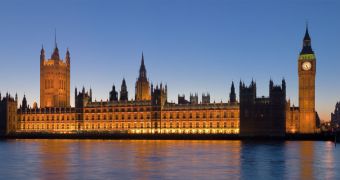Authorities in the United Kingdom hope to lead through the power of example. The nation has just become the first ever to adopt its own greenhouse gas emission cuts, at a time when other countries are still bickering over insignificant aspects of adopting such a measure themselves.
The cut that has now become legally-binding is not a small one either – the UK plans to reduce its emissions levels by 50 percent below 1990 levels, until no later than 2025. This is a really ambitious plans, both politicians and analysts agree.
This decision was taken in accordance to proposals made by the independent group called the Committee on Climate Change (CCC). The 50 percent reduction level is the minimum the CCC proposed. The government adopted in in the 4th Carbon Budget, which covers 2023 through 2027.
Commentators with the WWF, UK chapter, say that the amount of bickering politicians showed over these past few months – as the move was being discussed – is indicative of a certain amount of reluctance and lack of commitment to following this “green” trend.
While the environmental organization salutes the decision the authorities adopted, it does urge other environmental groups to monitor the situation, and ensure that efforts are indeed being made to reduce the amount of GHG the UK releases yearly.
“No other country has set legally binding emission reduction targets going into the 2020s and so with this decision the UK is demonstrating genuine leadership on climate change,” explains theWWF-UK head of climate change, Keith Allott.
“The Climate Change Act remains a groundbreaking piece of legislation that with support, will underpin the UK’s transition to a low-carbon economy,” the official adds further.
“However, we must remember that the Committee on Climate Change had made clear that the carbon budget agreed today is the 'absolute minimum' necessary, and that it should be achieved through actions taken here in the UK rather than relying on emission credits from overseas,” he adds.
“The unwillingness of Government to accept this recommendation suggests that some Whitehall departments are more committed to action than others,” Allott says of the obvious conclusion that can be drawn from this move.
Other countries will meet again to discuss the issues of GHG later this year, at the Conference of the Parties 17 (COP17). The event will take place between November 28 and December 9, in Durban, South Africa.

 14 DAY TRIAL //
14 DAY TRIAL //